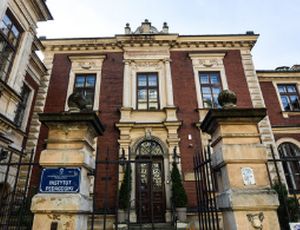
The Bronisław F. Trentowski Society of Philosophy of Education and the Department of General Pedagogy and the Philosophy of Education at the JU Institute of Pedagogy are hosting the international conference “Education and the State”.
Continuing the research problem addressed during the previous congress of the Society of Philosophy of Education, the conference organisers would like to reflect upon the philosophy of education both in the previous century and today. Education, remaining in the foreground of politics and being a focus of government policy, falls between philosophy, theory and practice, and ideology. Today, education and the State remain in a close relationship and dependence from each other, with all the positive and negative consequences of this situation. These interdependencies raise numerous questions and problems that the philosophy of education is facing.
Proposed thematic areas:
- educational tasks of the State: modern values and standards versus tradition and historical practices of education;
- reforms of education; comparative analysis and interpretation of individual past reform projects in Poland and abroad;
- Polish pedagogy and the education system in Poland in the context of world pedagogical thought and educational changes observed elsewhere;
- education management – goals and methods; forms of education at state, private, religious and/or local government level;
- enterprise and and competition versus cooperation in education;
- egalitarian and elite education;
- goals and expectations of education subjects towards the State;
- universal values and criteria for good education;
- education areas incorporated or left free by the State and/or the Church;
- pedagogy as related to ideology; norms for worldview education of national, patriotic, civic, religious, moral and/or historical type;
- international initiatives of educators in specific projects and implementation proposals; real-life examples of how teachers and educators cooperate, exchange experiences, and engage in dialogue.

